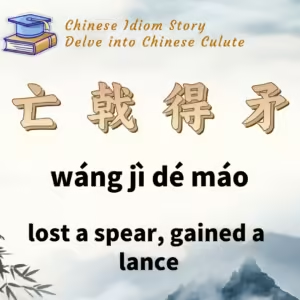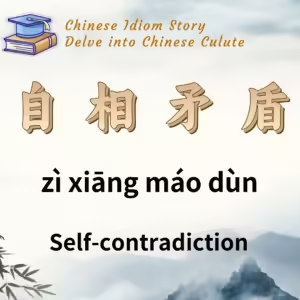
Chinese Idiom: 亡戟得矛 (Wang Ji De Mao)
English Translation: Lost a spear, gained a lance
pīn yīn: wáng jì dé máo
Idiom Meaning: This idiom is used to express the idea that losing something is compensated by gaining something of equivalent value. It implies that the loss and gain balance each other out, and one is not at a disadvantage overall.
Historical Source: “Lüshi Chunqiu” (吕氏春秋·离俗)
Idiom Story
During a war between the states of Qi and Jin, a young soldier who had not yet reached the required age for military service was involved in the conflict. In the heat of battle, he lost his spear but managed to find a lance on the battlefield. He was unsure whether he could keep the lance and return to his unit without facing punishment for the loss of his spear.
The soldier asked a passerby if losing a spear and finding a lance could be considered equivalent, thus allowing him to rejoin his unit without penalty. The passerby responded, “A spear and a lance are both weapons, so losing one and gaining the other effectively cancels out the loss. Why should you be penalized?”
The soldier, still uncertain, sought a second opinion. This time, he was told, “A lance is not the same as a spear, and a spear is not equivalent to a lance. Losing a spear and gaining a lance are not equivalent and thus do not balance out.”
Despite the differing opinions, the idiom “亡戟得矛” has come to symbolize the concept that what is lost can be balanced by what is gained, implying that the situation overall remains equitable.






